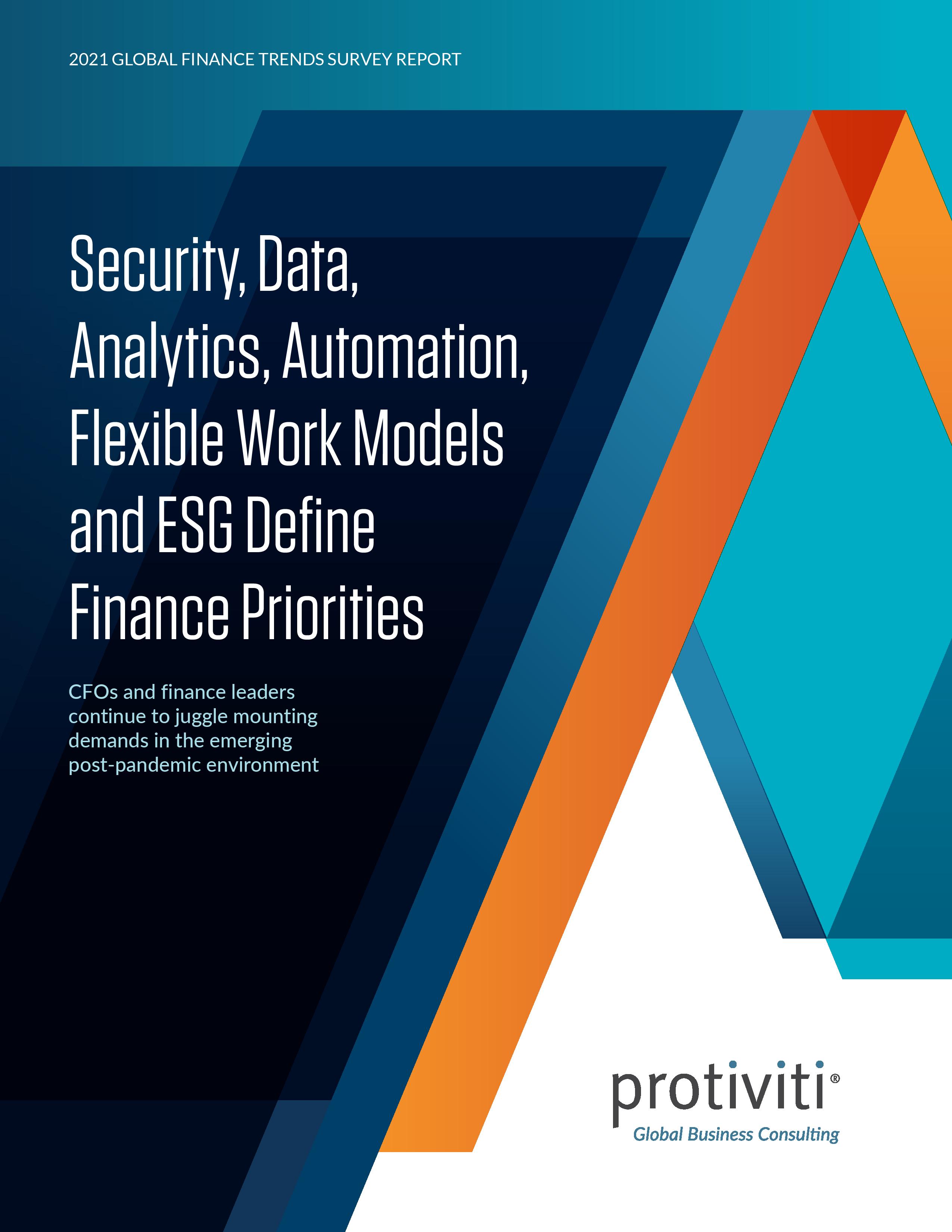2021 Finance Trends Survey Report
Subscriber Content
Preview Image
Image

Insights from Finance Executives on What to Expect in the Coming Year
The COVID-19 global pandemic accelerated digitalization, remote work, supply chain disruptions, trade wars and other preexisting business trends. It also unmasked the adequacy of organizational resilience (or lack thereof) while equipping CFOs with brutally honest judgments about their finance transformation progress. This clarity provides finance leaders with a rare opportunity: a game plan for rapid improvements that should be implemented immediately.
In regard to this clarity, the findings of Protiviti’s 2021 Global Finance Trends Survey reveal an unambiguous conclusion: The world, businesses and corporate finance teams have entered a new era, and there is no going back.
Key findings include:
- “Beyond-finance” priorities top CFO to-do lists — CFOs continue to strengthen and sharpen their strategic involvement in organizational data security and privacy, supply chain management, ESG reporting, and Human Capital management (and reporting), while deploying greater use of automation, advanced tools and data analytics to perform traditional finance and accounting processes.
- Forecasting is the new X-factor — Forecasting was a challenging task prior to a global pandemic that exposed the limits of traditional forecasting processes and metrics. As major new sources of political, social, technological and business volatility arise in an unsteady post-COVID era, forecasting has become exponentially more important and more daunting. In response, finance leaders are reconstructing forecasting and planning approaches to integrate more data from suppliers, vendors and nonfinancial sources, while also relying more on KBIs that fuel real-time decision-making support throughout the organization.
- CFOs help manage internal and external CX — Steadily increasing prior to COVID-19, the appetite for the finance group’s data-driven insights expanded during the pandemic. Leaders and colleagues throughout the organization beat down finance’s door for help responding to sudden supply chain disruptions, new information security risks, vexing resource shortages, new Human Capital and ESG reporting requirements and commitments, and more. CFOs are leading programs to migrate financial functions to the cloud, in part to provide their organizations with an improved customer experience (CX) in the form of self-service insights and a less burdensome financial reporting process. From an external perspective, CFOs are aiming for customer growth, bringing CX value and prioritizing the organization’s investment in the CX capabilities that will have the most significant impact. These and other CX-related needs show no signs of abating.
- Finance’s flexible labor model expands — Finance groups have been pioneers in embracing a diverse talent pool of full-time employees, contract and temporary workers, expert external consultants, and managed services and outsourcing providers. In the face of long-term talent crunches, CFOs are recalibrating flexible labor models and helping other parts of the organization develop a similar approach to ensure the entire future organization can skill and scale to operate at the right size and in the right manner.
Related Resources